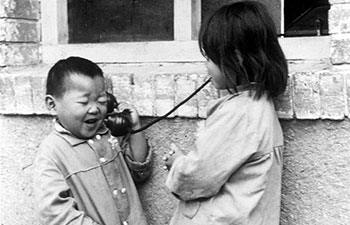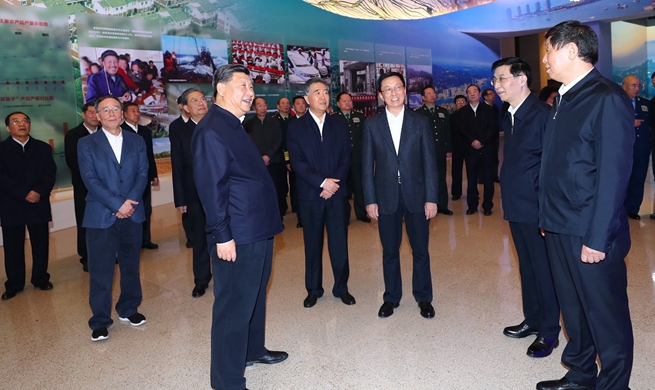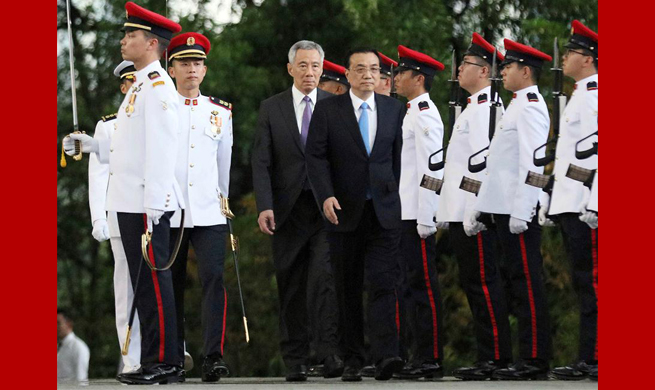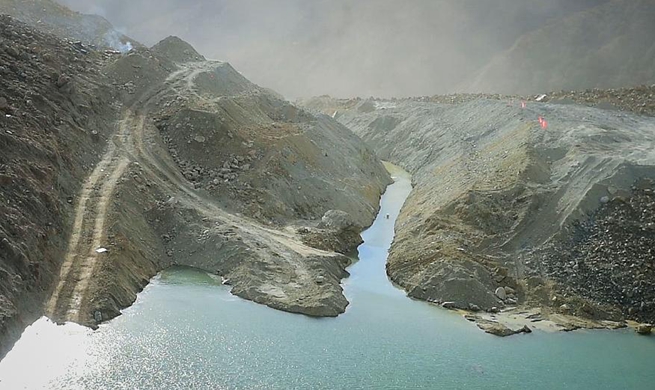GAZA, Nov. 13 (Xinhua) -- Palestinian analysts said that the current tension between Israel and Hamas-led militant groups in the Gaza Strip is like a competition, and neither side is likely to surrender first for a cease-fire.
The analysts worried that the current flaming tension between the two sides might lead to large-scale confrontations in the Gaza Strip, if the efforts of the Egyptian mediators fail.
However, Hamas and other militant groups said in a joint statement that Egypt has on Tuesday night succeeded to broker a cease-fire after two-day clashes.
Since Sunday evening, 13 Palestinian militants and one Israeli army officer were killed in the confrontations and the Israeli war jets airstrikes waged on the Gaza Strip. Militants fired more than 400 rockets from the Gaza Strip into Israel, while the Israeli army carried out more than 150 airstrike on the territory.
Analysts told Xinhua in separate interviews that what is happening in the Gaza Strip is the worst round of violence between Israel and Gaza Hamas-led militant groups since the last large-scale Israeli air and ground military offensive waged on the coastal enclave in the summer of 2014.
Hani Habib, a Gaza-based political analyst, said "what happens in the Gaza Strip is a significant escalation, where Israel and the Palestinian factions are trying to keep control of it," adding "but the possibilities that this escalation grows up to a large-scale war are large."
"I think the Gaza Strip is not in need of more wars with Israel, because the enclave has been exhausted of deteriorating economic, social and political situations," said Habib, adding "Gaza had passed through three wars in 2008, 2012 and 2014, and in this situation it doesn't need more."
However, Habib said that the coming few hours "are decisive," adding that "Israel will decide the characteristics of the coming confrontation with Hamas because Israel is the one that has the military balance of power in its hands."
Meanwhile, well-informed Palestinian sources told Xinhua that the Egyptian security intelligence and United Nations Special Envoy Nickolay Mladenov are exerting efforts to reach a cease-fire in Gaza between Hamas and Israel to put an end to more deterioration.
According to the sources, the Palestinian factions insisted on firing rockets into Israel as long as Israel doesn't stop its airstrikes on the Gaza Strip, which according to analysts means no one would compromise and ask for an end of escalation.
The round of tension between the two sides started on Sunday evening when a special Israeli army undercover force entered 3 km into eastern Gaza Strip. After the force was discovered, seven Hamas militants and one Israeli officer were killed.
On Monday evening, Hamas and other Gaza militant groups, who formed a joint operations room, claimed responsibility for firing barrages of rockets from the Gaza Strip into southern Israel. In response, Israeli war jets carried out intensive airstrikes on Hamas and Islamic Jihad facilities and structures.
Seven Palestinians were killed and 25 wounded in the airstrikes, while two Israeli citizens were killed and 90 injured by the rockets fired from the Gaza Strip into southern Israel.
The Palestinian ministry of information in Gaza said in a statement that Israel destroyed 80 constructions and buildings in the enclave.
Mekhemer Abu Se'da, the Gaza-based political science professor, said that the Israeli undercover force's infiltration deep into the Gaza Strip was the main reason that compelled Hamas and other militant groups to retaliate.
"Israel's persistence in targeting Gaza is due to the fact that Israel's deterrent capabilities have eroded and fallen in recent times," said Abu Se'da, adding "it's the worst mutual escalation since the last war in 2014, still there is a possibility to stop aggression, but this depends on the efforts of intermediaries.
Abu Se'da added that the intervention of mediators to prevent escalation in Gaza this time will not be easy because the mutual bombing operations are fierce and the most serious since the last war.
The current round of tension came after weeks of mediation by the United Nations, Egypt and Qatar to strengthen the understandings of calm in the Gaza Strip in exchange for Israeli steps to improve the humanitarian situation in the territory.
The Gaza Strip has recently witnessed a marked improvement in the electricity supply provided to the population thanks to Israel allowing industrial fuel trucks funded by Qatar to operate the only power plant in the Gaza Strip.
Israel also allowed the expansion of the fishing area to nine miles, improved the functioning of crossings of the enclave, and allowed in Gaza a financial grant from Qatar for poor families and the salaries of government employees appointed by Hamas after 2007.
Ibrahim Madhoun, a Gaza-based political analyst, said "it is too early to talk about an open confrontation or war that Israel would wage on the Gaza Strip."
"We are witnessing the most violent rounds of escalation since 2014, but the chances of containing this escalation depends on the status that there will be no massacre or assassination of senior Palestinian leaders or no more Israelis getting killed," he said.















